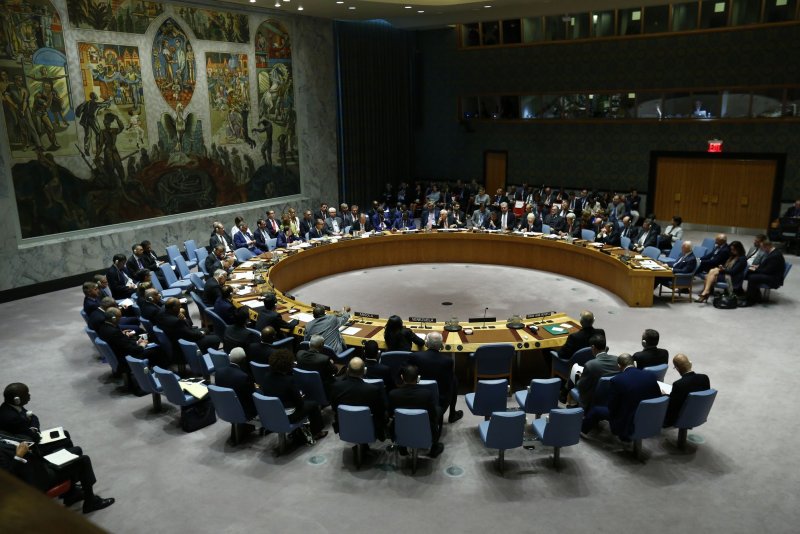The latest U.N. Security Council sanctions targeting North Korea is cutting coal exports. The measures may not be enough, some experts say. Photo by Monika Graff/UPI |
License Photo
NEW YORK, Nov. 30 (UPI) -- The United Nations Security Council adopted a new sanctions resolution that will target North Korea's nuclear weapons program by tightening restrictions on coal exports.
But some experts are skeptical sanctions Resolution 2321 is enough to alter Pyongyang's ability to proliferate weapons of mass destruction, Yonhap reported.
The latest sanctions also ban exports of copper, nickel, silver, zinc and even the sale of statues, the BBC reported Wednesday.
Coal exports are expected to decline by 60 percent and China's approval of the new ban has played a pivotal role in the agreement.
Beijing, a traditional ally of Pyongyang, has grown weary of North Korea's multiple provocations that have included a fifth nuclear test in September and dozens of missile provocations in 2016.
The sanctions could mean a loss of $800 million in revenue for North Korea, a significant portion of total exports that is estimated to be about $3 billion, according to Yonhap.
That may not be enough to keep weapons proliferation in check, analysts say.
Robert Manning, a senior fellow at the Atlantic Council, described the sanctions as a modest step forward, narrowing some loopholes.
"They will make life a bit more difficult for the North Korean elite, but are unlikely to change [Kim Jong Un's] behavior," Manning told Yonhap.
Ken Gause, a North Korea analyst at CNA Corp said the measures could provoke North Korea to carry out more tests.
But George Lopez, a former member of the U.N. Panel of Experts for monitoring the sanctions on North Korea, and now at the University of Notre Dame, said a rule requiring member states like China to certify coal tonnage and payment could increase accountability and track progress.
Lopez also said in a statement to UPI that while the resolution alone will not end North Korea's nuclear program, the sanctions are a "stark reminder" that states subject to sanctions may be suspended from their U.N. rights and privileges, and could make the six-party talks as a more attractive alternative for North Korea when asserting its nuclear claims.















